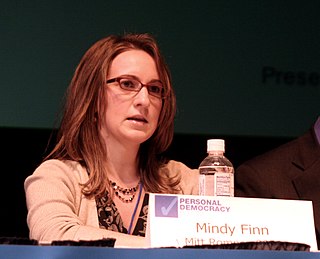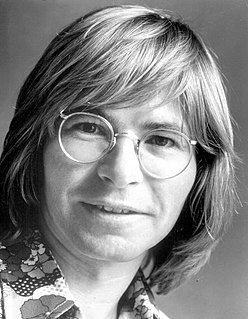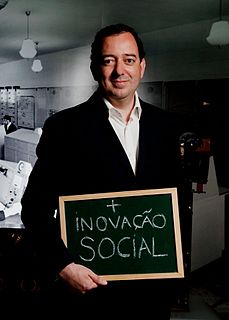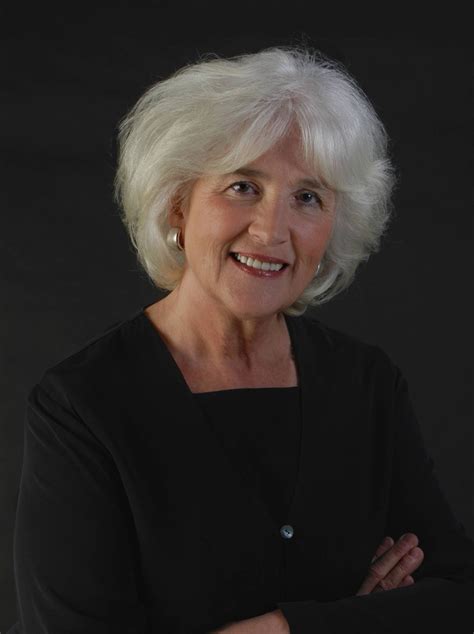Top 1200 Healthy Economy Quotes & Sayings - Page 15
Explore popular Healthy Economy quotes.
Last updated on December 23, 2024.
But can we please stop insisting that if low-wage workers earn a little bit more, unemployment will skyrocket and the economy will collapse? There is no evidence for it. The most insidious thing about trickle-down economics is not the claim that if the rich get richer, everyone is better off. It is the claim made by those who oppose any increase in the minimum wage that if the poor get richer, that will be bad for the economy. This is nonsense.
After 25 quarters of so-called recovery under Obama, it has increased a total of only 14.3 percent. Compare this to earlier periods. After the JFK tax cuts of the early 1960s, the economy grew in total by roughly 40 percent. After the Reagan tax cuts of the 1980s, the economy grew by a total of 34 percent.
I think the fact that our economy has changed dramatically over the last 20 years. It's a new economy that has really left some people behind but it has also leveled the playing field in way that has really provided access to women and people of every color, race, and creed to participate and thrive. So while that's not explicitly a women's issue, what it highlights is that women have more opportunities than they've ever had in this country.
The Democratic Party's problem is that voters don't believe the president's claims that the economy is thriving. Even people with jobs feel apprehensive. Paychecks are flat, growth anemic, and people are worried about their children's prospects. Mr. Obama had a 38% approval on handling the economy in the Sept. 9 Fox News poll. In the Sept. 7 NBC News/Wall Street Journal poll, 67% believe America is on the wrong track.
My Prime Minister regards the economy as our highest priority and forgets that economics and ecology are derived from the same Greek word, oikos, meaning household or domain. Ecology is the study of home, while economics is its management. Ecologists try to define the conditions and principles that enable a species to survive and flourish. Yet in elevating the economy above those principles, we seem to think we are immune to the laws of nature. We have to put the ‘eco’ back into economics.
If you confine yourself to this Skinnerian technique, you study nothing but the learning apparatus and you leave out everything that is different in octopi, crustaceans, insects and vertebrates. In other words, you leave out everything that makes a pigeon a pigeon, a rat a rat, a man a man, and, above all, a healthy man healthy and a sick man sick.
Capitalism has created a situation called scarcity. And that scarcity is not natural, it's socially induced. Along with that sense of scarcity, or feeling of scarcity, is a feeling of economic insecurity. Along with that is a feeling of deprivation... And unless we can demonstrate that that feeling is not justified technologically, we will not be able to speak intelligently to the great majority of people and reorganize our economy so that we really know what needs are rational and human and what have been created, almost fetishisticaly, by the capitalist economy.
What is it about a work of art, even when it is bought and sold in the market, that makes us distinguish it from . . . pure commodities? A work of art is a gift, not a commodity. . . works of art exist simultaneously in two “economies”, a market economy and a gift economy. Only one of these is essential, however: a work of art can survive without the market, but where there is no gift, there is no art.
You know, I think my biggest concern [if Mitt is elected], obviously, would just be for his mental well-being. I have all the confidence in the world in his ability, in his decisiveness and his leadership skills, in his understanding of the economy, in his understanding of what's missing right now in the economy - you know, pieces that are missing to get this jump-started. So for me I think it would just be the emotional part of it.
I just think, realistically, there's a lot of room outside the Trump populist right and the Bernie-Sanders-Elizabeth-Warren populist left. There are a lot of us who believe in open trade, open borders, a dynamic forward-looking economy, not a nostalgic economy, but do want to provide a significant level of social service or sort of economic Milton Friedman foreign policy, Ronald Reagan domestic policy, Franklin Roosevelt. And there's a lot of room in the center.
The median family income in the U.S. is lower than it was a quarter-century ago, and if people don't have income, they can't consume, and you can't have a strong economy. There's significant risk - actually it's no longer a risk - a significant likelihood of a marked slowdown not only in China, but also in a lot of other countries like Brazil, which is in recession. All of the other countries that depend on commodities, including Canada, are facing difficulties. So it's hard to see a story of a strong U.S. economy.
A healthy soul must do two things for us. First, it must put some fire in our veins, keep us energized, vibrant, living with zest and full of hope as we sense that life is, ultimately beautiful and worth living ... Second, a healthy soul has to keep us fixed together. It has to continually give us a sense of who we are, where we came from, where we are going, and what sense there is in all of this.
Trickle-down economics - it didn't work. The whole idea was supply-side economics: give rich people a lot of money; they'll spend it, it'll go into the economy. Here's what we found out - rich people, really good at keeping all the money. That's how they got rich. If you want it in the economy, give it to the poor people. You know what they're really good at? Spending all their money.
The economy in the next 20 to 25 years is going to change more than they did in the last 20, 25 years. And that's because exponential trends are affecting a bigger and bigger share of the economy. So we have some huge disruptions in store, and I can't predict exactly what the innovations are going to be. If I did, I would have already invented them. But I think they'll be comparable to the innovations we saw in the past 20, 25 years if not greater.
Epidemic obesity is an enormous problem. It's a pendulum that's swung too far. We have to swing it back. So it should come as no surprise that solution must be built from the ground up on the banks of this flooding river and it must be raised to a height higher than flood waters. Now what does that look like? It looks like policies and programs that cultivate healthy levels of physical activity, healthy dietary patterns in homes, in schools, in supermarkets, in neighborhoods, in clinics, in churches, in workplaces, throughout our society, every place we can reach people.
I know that there are those who disagree with the overwhelming scientific evidence on climate change. But here's the thing -- even if you doubt the evidence, providing incentives for energy-efficien cy and clean energy are the right thing to do for our future -- because the nation that leads the clean energy economy will be the nation that leads the global economy. And America must be that nation.
What do the 5%, or the 1% actually use their money for? They lend it back to the economy at large, they load it down with debt. They make their money by lending to the bottom 95%, or the bottom 99%. When you give them more after-tax income, it enables them to buy even more control of government, even more control of election campaigns. They're not going to spend this money back into the goods-and-services economy.
I've always wanted to help build a better society and build a better company, and I always wanted a healthy, vibrant company, a healthy, vibrant society. We take care of our people, we provide them with opportunity. But I've always believed business is here to serve your clients, your shareholders, your communities. If we do this well, everyone benefits. We have to do a good job for all of them.
It would be more in keeping with the intention of the noblest man in this world if our two Christian churches, instead of annoying Negroes with missions which they neither desire nor understand, would kindly, but in all seriousness, teach our European humanity that where parents are not healthy it is a deed pleasing to God to take pity on a poor little healthy orphan child and give him father and mother, than themselves to give birth to a sick child who will only bring unhappiness and suffering on himself and the rest of the world.
In 1994, Estonia became the first European country to adopt a flat tax, and its 26 percent flat tax dramatically energized what had been a faltering economy. Before adopting the flat tax, the Estonian economy was literally shrinking. In the eight years after 1994, Estonia experienced real economic growth - averaging 5.2 percent per year.
People are only mean when they're threatened… and that's what our culture does. That's what our economy does. Even people who have jobs in our economy are threatened, because they worry about losing them. And when you get threatened, you start looking out only for yourself. You start making money a god. It is all part of this culture.
Someone who has thought rationally and deeply about how the body works is likely to arrive at better ideas about how to be healthy than someone who has followed a hunch. Medicine presupposes a hierarchy between the confusion the layperson will be in about what is wrong with him, and the more accurate knowledge available to doctors reasoning logically. At the heart of Epicureanism is the thought that we are as bad at answering the question "What will make me happy?" as "What will make me healthy?" Our souls do not spell out their troubles.
It's hard for these athletes to stay healthy. They are constantly being bombarded with unhealthy advertising. Peer pressure can override the body's demand for health. Being healthy goes beyond 'not being sick' (where all lab reports indicate health), to feeling optimistic, energetic, strong and happy with their bodies. Teaching them to take charge of their bodies is a job of coaching. Help them gain discipline in conditioning, nutrition and attitude/emotional control.
Well, certainly the Democrats have been arguing to raise the capital gains tax on all Americans. Obama says he wants to do that. That would slow down economic growth. It's not necessarily helpful to the economy. Every time we've cut the capital gains tax, the economy has grown. Whenever we raise the capital gains tax, it's been damaged.
The US economy, because it's so energy wasteful, is much less efficient than either the European or Japanese economies. It takes us twice as much energy to produce a unit of GDP as it does in Europe and Japan. So, we're fundamentally less efficient and therefore less competitive, and the sooner we begin to tighten up, the better it will be for our economy and society.
The sluggish economy is creating a situation where the young people in Japan cannot cherish their desires or have prospects for their future. Also, the decline in Japan's economic capability is resulting in a declining presence for Japan's foreign policy as well.
Accordingly, the duties and mission that I must fulfill are pretty clear: namely, to regain a strong and robust economy, and also to restore Japan's strong foreign policy capability.
Broadly speaking, Keynesianism means that the government has a specific responsibility for the behavior of the economy, that it doesn't work on its own autonomous course, but the government, when there's a recession, compensates by employment, by expansion of purchasing power, and in boom times corrects by being a restraining force. But it controls the great flow of demand into the economy, what since Keynesian times has been the flow of aggregate demand. That was the basic idea of Keynes so far as one can put it in a couple of sentences.
If you want to become physically stronger, you'll need healthy habits - like going to the gym. You'll also have to give up unhealthy habits - like eating junk food. Building mental strength requires healthy habits - like practicing gratitude - while also giving up unhealthy behavior, like giving up after the first failure.
We're foolish if we think we're going to end mass incarceration unless we are willing to deal with the reality that huge percentages of poor people are going to remain jobless, locked out of the mainstream economy, unless and until they have a quality education that prepares them well for the new economy. There has got to be much more collaboration between the two movements and a greater appreciation for the work of the advocates in each community. It's got to be a movement that's about education, not incarceration - about jobs, not jails.
I think capitalism will not disappear, but it's going to increasingly not be the exclusive arbiter of economic life. It's going to have to find value in interacting with the sharing economy on many levels. And this hybrid system that's already emerging among millennials is going to be a mature system where, by midcentury, part of the day will be in the capitalist market, part of the day in the sharing economy, depending on your marginal costs.
Capitalism is very far from a perfect system, but so far we have yet to find anything that clearly does a better job of meeting human needs than a regulated capitalist economy coupled with a welfare and health care system that meets the basic needs of those who do not thrive in the capitalist economy. If we ever do find a better system, I'll be happy to call myself an anti-capitalist.
As the United States continues its slow but steady recovery from the depths of the financial crisis, nobody actually wants a massive austerity package to shock the economy back into recession, and so the odds have always been high that the game of budgetary chicken will stop short of disaster. Looming past the cliff, however, is a deep chasm that poses a much greater challenge -- the retooling of the country's economy, society, and government necessary for the United States to perform effectively in the twenty-first century.
We're going to move from a commodity economy where you basically grow the same kind of crops - where a kernel of corn is a kernel of corn is a kernel of corn - to an ingredient economy where there will be a kernel of corn that will be designed for fuel, there will be a kernel of corn designed for livestock.
Our practical choice is not between a tax-cut deficit and a budgetary surplus. It is between two kinds of deficits: a chronic deficit of inertia, as the unwanted result of inadequate revenues and a restricted economy; or a temporary deficit of transition, resulting from a tax cut designed to boost the economy, increase tax revenues, and achieve -- and I believe this can be done -- a budget surplus. The first type of deficit is a sign of waste and weakness; the second reflects an investment in the future.
I suppose that's a question most often asked of me by people who would like to make a positive contribution towards a sustainable future and a healthy environment. There are so many things that need to be done that sometimes it seems overwhelming. I try to remind everyone that no one person has to do it all but if each one of us follows our heart and our own inclinations we will find the small things that we can do, and together we will come up with enough to create a sustainable future and a healthy environment.
The focus of all life is its economy, the mode through which every living creature produces its material existence. I know no other criterion for the evaluation of social life except that of social economy. In society, just like anywhere else, the mode of production is the focus around which revolve all the modes of life: in the historical life of conscious beings, it is also the focus of all modes of consciousness.
Money is not a part of the visible sector of the economy; people do not consume money. Money is not a physical factor of production, but rather a yardstick for measuring economic input, economic outtake and the relative values of the real goods and services of the economic world. Money provides a method of measuring obligations, rights, powers and privileges. It provides a means whereby certain individuals can accumulate claims against others, or against the economy as a whole, or against many economies.
We can't afford to waste people. We can't afford to have people think the game is over before it's begun. We've got to be saying to the Canadian people: you can't tax cut your way to a productive 21st-century economy. You can talk that talk, but it's not going to give you a productive 21st-century economy, because it will scythe apart the public goods that make prosperity possible. That's what we've got to say, and so we shall.
Our economy has become completely different, on the whole. The size has changed. The economy has almost doubled in size. And the quality is changing, not as fast as we would like it to, but the structure is changing. Our Armed Forces are completely different today from what they were, say 15 years ago or so. All of this, including our great history, great culture, all of this, not just what we see today, is what makes the vast majority of Russia's citizens feel proud for their country.
In the eighties and nineties, the innovation agenda was exclusively focused on enterprises. There was a time in which economic and social issues were seen as separate. Economy was producing wealth, society was spending. In the 21st century economy, this is not true anymore. Sectors like health, social services and education have a tendency to grow, in GDP percentage as well as in creating employment, whereas other industries are decreasing. In the long term, an innovation in social services or education will be as important as an innovation in the pharmaceutical or aerospatial industry.
Why is almost every robust healthy boy with a robust healthy soul in him, at some time or other crazy to go to sea? Why upon your first voyage as a passenger, did you yourself feel such a mystical vibration, when first told that you and your ship were now out of sight of land? Why did the old Persians hold the sea holy? Why did the Greeks give it a separate deity, and own brother of Jove? Surely all this is not without meaning.
As our economy faces up to potential labour shortages due to our ageing population and as it moves to a new level of sophistication to compete with the rest of the world, we're going to need every Australian on board pulling their weight, rejoining the workforce, gaining new skills. Writing off individuals and communities suffering from poverty just creates a dead weight for our economy to drag along.
The bottom line for housing is that the concerns we used to hear about the possibility of a devastating collapse—one that might be big enough to cause a recession in the U.S. economy—while not fully allayed have diminished. Moreover, while the future for housing activity remains uncertain, I think there is a reasonable chance that housing is in the process of stabilizing, which would mean that it would put a considerably smaller drag on the economy going forward.
Getting the economy back on its feet is properly viewed as an investment in future prosperity. When businesses and consumers confront attractive investment opportunities, often the only way to seize them is by borrowing. The same is true for government. Contrary to the pronouncements of critics of economic stimulus, these investments will not impoverish our grandchildren. Continuing to allow the economy to languish in recession is the surest way to impoverish them.
Legal systems, at both the national and international level, are therefore required to recognize, guarantee and protect religious freedom, which is a right intrinsically inherent in human nature, in man's dignity as a free being, and is also an indicator of a healthy democracy and cone of the main sources of the legitimacy of the State. Religious freedom ... favors the development of relationships of mutual respect between the different Confessions and their healthy collaboration with the State and political society, without confusion of roles and without antagonism.
The creative process ignites our imagination, and I believe that that same imagination is what will propel us forward with issues of social change. I do think we have to acknowledge that we are a very capitalistic and consumptive nation, and that talk about conservation or issues of sustainability is never going to be popular with the dominant culture because it means checks and balances on an economy that is reserved for the dollar, rather than an economy that honors and respects spiritual resources and the right of all life to participate on the planet, not just our species.
I wouldn't necessarily assume that because Capricornia has traditionally been a Labor seat, that it'll go back to the Labor Party this time because the big issue in Capricornia which is based on the city of Rockhampton is the fact that the economy is - the regional economy is in a poor shape as a result, in particular of the decline of the mining industry and they are looking to the Carmichael mine, the Adani project as containing all of the prospects that they see for their future and that is why people in Rockhampton are very, very fearful of a Labor-Greens government.
The most serious problems lie in the financial sphere, where the economy's debt overhead has grown more rapidly than the 'real' economy's ability to carry this debt. [...] The essence of the global financial bubble is that savings are diverted to inflate the stock market, bond market and real estate prices rather than to build new factories and employ more labor.
We need to deal with three things that are important: first, we need a very deep reconsideration of how we are dealing with the economy. Second, there must be a very deep reconsideration of our way of life. We cannot simply adopt American-style consumer culture. To Islamize that is to de-Islamize Islam.Thirdly, it is important for us to understand the economy and the environment are common challenges for everyone. This is where the singularity of Islamic principles needs to join the universal values that we share with others.
There's no denying that a collapse in stock prices today would pose serious macroeconomic challenges for the United States. Consumer spending would slow, and the U.S. economy would become less of a magnet for foreign investors. Economic growth, which in any case has recently been at unsustainable levels, would decline somewhat. History proves, however, that a smart central bank can protect the economy and the financial sector from the nastier side effects of a stock market collapse.
To change our national economic story from one of financial speculation to one of future growth, we need a third industrial revolution: a green revolution. It will transform our economy as surely as the shift from iron to steel, from steam to oil. It will lead us toward a low-carbon future, with cleaner energy and greener growth. With an economy that is built to last - on more sustainable, more stable foundations
We need to remake and reinvent our housing system so that it supports the flexibility and mobility of our economic system broadly. Home-ownership is rewarded by the federal tax code, which made great sense when that piece of the American Dream, and all the consumption that came with it, was essential to rebuilding the economy. These days, however, it feels like a huge penalty to people who want to travel light within the new mobile economy without a mortgage to hold them back.
Nevertheless, it is necessary to remember that a planned economy is not yet socialism. A planned economy as such may be accompanied by the complete enslavement of the individual. The achievement of socialism requires the solution of some extremely difficult socio-political problems: how is it possible, in view of the far-reaching centralisation of political and economic power, to prevent bureaucracy from becoming all-powerful and overweening? How can the rights of the individual be protected and therewith a democratic counterweight to the power of bureaucracy be assured?
Balance and control come from healthy anger. This is just as aggressive as the unhealthy kind. But it is based on a belief and hope for change in social roles and institutions. Healthy anger demands change and creates the confrontations needed for change to occur. It also gives the other an opportunity to help make that change. “Our task, of course, is to transmute the anger that is affliction into the anger that is determination to bring about change. I think, in fact, that one could give that as a definition of revolution.
One of the reasons why this country undertook military action in Iraq was that there are quite a few problems here, and perhaps attention needed to be deflected from those problems. It sometimes seems that the U.S. economy works successfully only if it gets a stimulus from the defense industry. So perhaps in addition to showing the power and the might of the United States internationally, another reason was to help the defense industry and to help the U.S. economy recover.
I wanted to lose 30 pounds healthfully and still be able to enjoy my college experience. Having succeeded in doing just that, I wanted to share my experiences with others who could benefit from my direct knowledge of the difficulty of trying to balance college life with being healthy. It became a journey about healthy lifestyle choices, including tips and tricks for creating a new relationship with food where I was in control and could learn to love food healthfully again.
Energy is a sector of the economy that has been particularly resistant to innovation. This is precisely the problem. It is why we are still dependant on energy sources that are 100 to 150 years old while virtually every other sector of the economy has transformed itself. This is why we believe that the faith that many environmentalists still hold that carbon regulations and taxes will drive sufficient private sector investment into energy markets to create the kind of innovation we need is unfounded.


























































